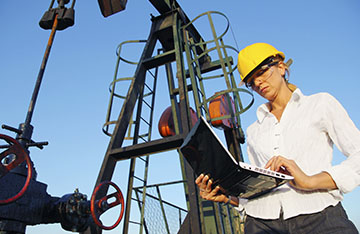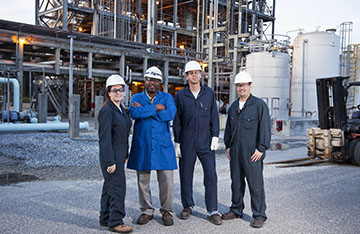API Releases New Updates to Standards for Hazard Management in Process Plant Structures
January 16, 2024 — The American Petroleum Institute (API) is pleased to announce the publication of the latest editions of three critical safety standards: Recommended Practice 752 (RP 752), Management of Hazards Associated with Location of Process Plant Permanent Buildings, 4th edition; Recommended Practice 753 (RP 753), Management of Hazards Associated with Location of Process Plant Portable Buildings, 2nd edition; and Recommended Practice 756 (RP 756), Management of Hazards Associated with Location of Process Plant Tents, 2nd edition. These updates collectively serve to enhance the safety of the men and women working every day in oil and natural gas facilities by providing comprehensive guidelines for the placement of permanent buildings, trailers and tents. This approach is designed to minimize risks to personnel from potential explosion, fire, and toxic material release hazards.
“The updated editions of RP 752, 753, and 756 and our associated safety assessment program reflect API's proactive approach in adapting to evolving industry challenges and technologies,” said Anchal Liddar, Senior Vice President of API’s Global Industry Services (GIS) division. “They will foster a culture of continuous improvement and vigilance while helping to minimize the risks associated with process plant structures."
Impact and Importance
These documents aim to strategically position personnel at a safe distance from process areas, recognizing the high flammability of oil and natural gas. This involves reducing the use of buildings and tents near these areas and carefully managing their occupancy, especially during high-risk operations such as planned shutdowns. These updates enhance safety and performance, demonstrating API’s ongoing commitment to safety, sustainability and operational integrity.
These three API standards form the basis for API’s facility siting assessments that are conducted as part of the Process Safety Site Assessment Program (PSSAPâ). In the coming months, API will be revising the PSSAP protocol for facility siting to include these updated standards. It will transition to assessing against the updated protocol in June 2024, giving industry six months to digest the new and updated requirements.
Expanded Scope
Incorporating 62 new mandatory requirements, these editions include expanded sections on fire and toxic release hazards, along with new examples and explanatory language. A key addition is the alignment of the toxic shelter approach with API RP 751, Safe Operation of Hydrofluoric Acid Alkylation Units. Also incorporated is guidance on the treatment of portable buildings that are used as permanent structures.
The release of these standards underscores API’s ongoing efforts to adapt to new challenges and continually improve safety across the oil and natural gas industry. They will be featured at the upcoming AFPM Advancing Process Safety (APS) Summit in January 2024. API’s PSSAP program is a part of this initiative, and the PSSAP approach for updating the associated assessment protocol will be discussed as part of the summit, taking feedback from industry in its update.
For more information on RPs 752, 753, and 756, please visit https://www.apiwebstore.org/.
API represents all segments of America’s natural gas and oil industry, which supports more than 11 million U.S. jobs and is backed by a growing grassroots movement of millions of Americans. Our approximately 600 members produce, process and distribute the majority of the nation’s energy, and participate in API Energy Excellence®, which is accelerating environmental and safety progress by fostering new technologies and transparent reporting. API was formed in 1919 as a standards-setting organization and has developed more than 800 standards to enhance operational and environmental safety, efficiency and sustainability.'





